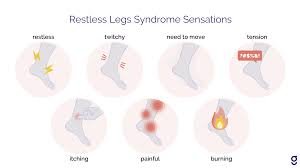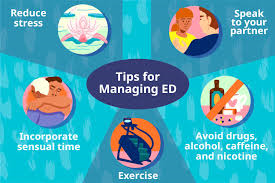When it comes to maintaining optimal testosterone levels, diet plays a crucial role. While many people gravitate toward health foods with the assumption they support overall wellness, some may inadvertently consume items that negatively impact testosterone. Here’s a closer look at those seemingly healthy choices that can be harmful.
1. Soy Products
Soy is often touted for its health benefits, particularly its high protein content and potential heart health advantages. However, soy contains phytoestrogens, which can mimic estrogen in the body. Excessive consumption of soy products like tofu, soy milk, and edamame may lead to decreased testosterone levels.
2. Hemp seeds
Flaxseeds are a well-liked health food because of their high fiber and omega-3 fatty acid content. But just like soy, flaxseeds have phytoestrogens—more especially, lignans—that can throw off the body’s hormonal equilibrium. Certain studies have linked reduced testosterone levels to a high flaxseed consumption.
Flaxseeds have a lot of health benefits, but moderation is essential. A balanced diet that includes them without going overboard can help lessen any adverse effects on testosterone levels.
3. Pepper
Because of its cooling taste, mint—especially peppermint and spearmint—is often used in candies, drinks, and culinary preparations. Mint, particularly in women, may, however, reduce testosterone levels, according to certain research. Particularly, studies suggest that spearmint tea may affect hormonal balance and lower testosterone levels.
While consuming mint in moderation is generally harmless, excessive consumption—especially in the form of mint tea—should be avoided by those who have worries about their testosterone levels.
4. Foods that have been processed
Processed meals are dangerous for your testosterone levels in addition to being high in sugar, bad fats, and preservatives, all of which make them unhealthy. Trans fats and harmful compounds included in many processed meals can cause hormonal abnormalities and weight gain. It’s commonly recognized that obesity can affect testosterone levels, and eating a lot of processed food might make you gain weight.
Furthermore, a lot of processed foods have a lot of sugar, which might cause insulin resistance. The synthesis of testosterone may be adversely affected by elevated insulin levels. Reduce your intake of processed foods and increase your intake of full, unprocessed foods to help maintain healthy testosterone levels.
5. Tobacco
When drank in moderation, alcohol may be a healthy lifestyle choice and is frequently drunk in social contexts. Reduced testosterone levels, however, might result from excessive alcohol consumption. Research has indicated that excessive alcohol consumption may hinder the body’s capacity to generate testosterone and may also cause harm to the Leydig cells in the testes, which are in charge of producing testosterone.
While most people can tolerate moderate alcohol use, those who are worried about their testosterone levels might choose to cut back and choose healthier drinks instead.
6. Milk-Based Goods
Dairy items, such as cheese, yogurt, and milk, are common diet mainstays that are commended for having high protein and calcium contents. On the other hand, testosterone levels may also be impacted by some dairy products. Human hormone balance can be upset by the hormones in milk, especially if the cows who produced the milk were given growth hormone treatments.
Furthermore, a number of research have suggested a possible link between decreased and heavy dairy consumption, especially low-fat kinds. Opting for organic dairy or plant-based substitutes could be a worthwhile consideration for individuals seeking to sustain their ideal levels of testosterone.
7. Specific Plant-Based Oils
Even while vegetable oils like canola, soybean, and maize oil are frequently recommended as healthful cooking choices, their advantages might not be as great as previously believed. Because of the high content of omega-6 fatty acids in these oils, the body may become imbalanced in the ratio of omega-3 to omega-6. Overindulging in omega-6 fatty acids has been associated with inflammation and may have a deleterious effect on.
To maintain hormonal balance and reap the benefits of including healthy fats in your diet, it may be wiser to use healthier fats like olive, avocado, or coconut oil.
8. Specific Legume
Although legumes—such as beans, lentils, and chickpeas—are frequently praised for having a high protein and fiber content, they can also include substances that may affect Certain legumes contain phytoestrogens that may cause hormonal abnormalities by acting as an estrogen substitute in the body.
While beans can be a beneficial component of a well-balanced diet, people who are worried about their may want to watch how much they eat and think about switching up their sources of protein.
9. Sugar-Saturated Foods
Sugar-rich foods, such as candies, desserts, and sugary drinks, can cause insulin resistance and obesity, two conditions that have a detrimental effect on . Consuming a lot of sugar can elevate insulin levels, which can cause hormonal abnormalities and perhaps reduce testosterone.
Sugar consumption reduction and the substitution of healthier snacks for sugary ones can improve hormonal health and preserve normal
In summary
Even while a lot of meals are promoted as healthy, some may have unforeseen effects on testosterone levels. It’s critical to understand which unexpected health foods, such as soy products, flaxseeds, mint, processed foods, dairy, alcohol, specific vegetable oils, legumes, and high-sugar foods, may decrease testosterone levels.
When it comes to these items, moderation is crucial, and people should think about their overall dietary habits. Maintaining ideal testosterone levels and general health can be facilitated by concentrating on a balanced diet full of whole foods, healthy fats, lean proteins, and an abundance of fruits and vegetables. A healthcare provider can offer you individualized advice based on your dietary requirements and lifestyle if you are worried about your testosterone levels.
















Leave a Reply